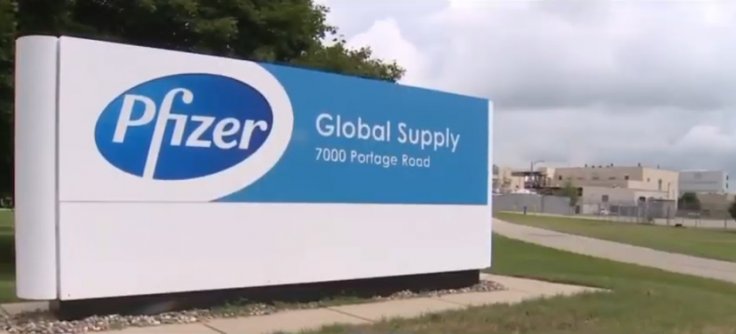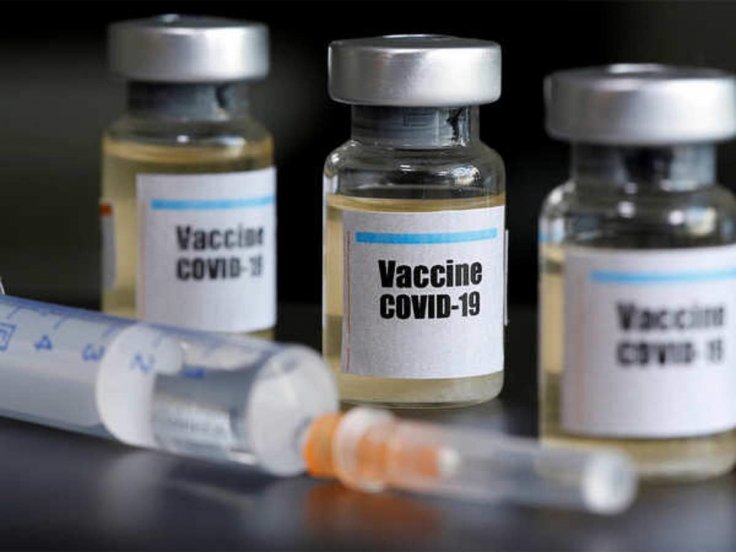Pharma giant Pfizer and partner BioNTech are likely to file for the much-anticipated emergency use authorization of their vaccine candidate at the Food and Drug Administration (FDA) on Friday. The news comes less than two day after the two drugmakers said that their coronavirus drug has proved to be 95 percent effective in the final analysis of the phase 3 trial including in people aged over 65 years.
Moderna, which earlier this week had said that its Covid-19 vaccine has proved to be 94.5 percent effective in adults suffering from the virus infection, too is likely to following in Pfizer and BioNTech's footsteps soon. This definitely has raised hopes among millions of getting a vaccine to treat the deadly virus in the coming months. However, the next big challenge now lies in distribution of the vaccine doses once it gets approval from the FDA. Although questions have been raised on the infrastructure required to store the vaccine, U.S. health officials have confirmed that freezers required to store Covid-19 vaccines are in place at health systems that are preparing to administer the initial doses.
Big Leap

"Hope and help are on the way" to fight the deadly coronavirus, said Health and Human Services Secretary Alex Azar on Thursday, after he announced that Pfizer and its partner BioNTech "intend to file for emergency use authorization at the FDA" for its COVID-19 vaccine on Friday.
Moderna too is likely to apply soon for the emergency authorization of its own vaccine. The news of the efficacy of both the vaccine candidates have raised hopes of ending the pandemic that has already claimed 1.3 million lives. Confidence among people got a further boost after United States' top infectious disease official Anthony Fauci said on Thursday that the two coronavirus vaccines being tested were "solid," and the speed at which they have been developed has not compromised safety or integrity.
What Next?

Although Pfizer is moving fast toward getting an approval from the FDA, its CEO Albert Bourla has urged people not to get complacent and keep following the safety rules diligently. Once the vaccine gets approved one of the biggest challenges will be of storing it and then distributing it among millions.
Both Pfizer and Moderna's vaccines are mRNA candidates. Although mRNA vaccines are thought to be relatively safe, they are usually costlier. But the challenge lies in storing the vaccine. The US government has already applied for 40 million doses, which are enough for vaccinating 20 million people and are likely to be distributed by December end.
US health officials on Wednesday said that freezers required to store Covid-19 vaccines are in place and Operation Warp Speed has identified hospitals, pharmacy chains and universities that have cold storage storage capacity. The first-available vaccine doses will initially go to these administration sites.

"The states have been working with this," said Gen. Gustave F. Perna, chief operating officer of Operation Warp Speed, said during a media briefing. All vaccine doses will initially go to hospitals, universities, and pharmacies that have cold-chain storage abilities, to "make sure no vaccine is wasted."
Even then, the challenges are bigger for Pfizer than Moderna. Pfizer and BioNTech's vaccine need special freezers as they must be stored at temperatures of negative 70 degrees. In regular freezers they can be stored for only five days. Moderna, however, has claimed that its vaccine can be stored at regular refrigerated temperatures for up to a month, and be kept in ordinary freezers for long-term use.
In fact, the federal government has also been running distribution rehearsals at states and local jurisdictions. The task force is also gearing up to buy more specialized refrigeration for sites that need it, and has been training medical staff health-care facilities on how to increase the longevity of the products through dry ice and other means. That said, the vaccine will be distributed first among those who are most vulnerable to contracting Covid-19 and then be rolled out to the broader population.









